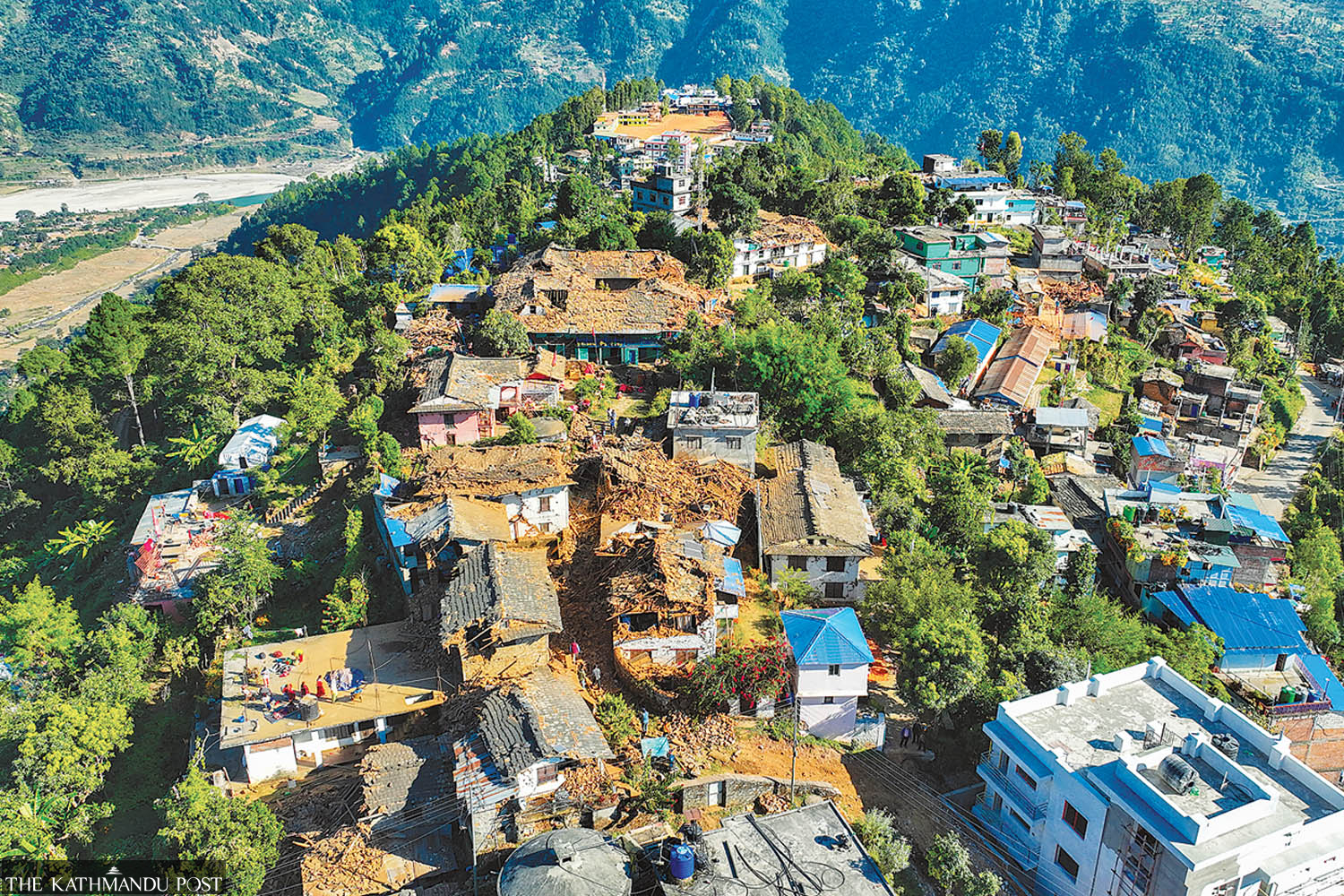



An earthquake of local Magnitude (ML) 6.4 occurred around Ramidanda of Jajarkot district at 23:47hrs. (local time) on 3 November 2023 (2080/07/18 BS). Nepal Government’s National Earthquake Monitoring & Research Centre (NEMRC) reported several aftershocks then on.
Situation Updates

Situation Report #1
On 3 November 2023, at 11:47 PM an earthquake of magnitude 6.4 ML followed by several major aftershocks struck Jajarkot, Rukum West and five other districts in Karnali Province of Nepal
Read more
Situation Report #2
On 5 November 2023, National Council for Disaster Risk Reduction and Management held a meeting for discussion on Jajarkot earthquake and Rt. Hon. Prime Minister Pushpa Kamal Dahal (Prachanda)...
Read more
Situation Report #3
Pampha Rawat, a resident of Bheri Municipality-1 in Jajarkot, was speaking to her eldest son in India over the phone when the 6.4 magnitude earthquake....
Read more| Once you feel earthquake shaking and inside, find a safe place and perform "Drop, Cover and Hold". |
| If you are in a place such as department store, or an exhibition hall, follow the instructions of the security guard or warden. |
| If you are at ground floor and near to exit, follow the safest and shortest route for evacuation. Be careful if the exit leads into a narrow lane which could be dangerous. |
| If you are outside, protect your head;avoid hazards like falling buildings, trees, electricity poles, bridges etc. |
| If you are in an automobile, move to the left curb and park, do not enter prohibited areas;avoid tall buildings, poles, tall trees and bridges. |
| Be careful of landslides, rock falls and impending hazards. |
| Do not panic or perform unsafe act such as rushing, jumping out of window. |
| Before evacuating, if possible turn off flames or heat sources that can cause fire. |
| As shaking stops, grab your Go Bag and then evacuate. |
| Ignore rumors, move only after receiving accurate information. |
| # | Title | Publish Date | Status | Action |
|---|---|---|---|---|
| 1 | Vacancy Announcement | 2024-10-17 | CLOSED | |
| 2 | Vacancy Announcement | 2024-09-09 | CLOSED | |
| 3 | Vacancy Announcement for the position of Chief of Party (COP) | 2024-04-17 | CLOSED | |
| 4 | Vacancy Announcement: for position Consultant (CSS/ Climate Change and Green Schools) | 2024-04-09 | CLOSED | |
| 5 | Vacancy Announcement for the position - Civil Engineer | 2024-02-27 | CLOSED |